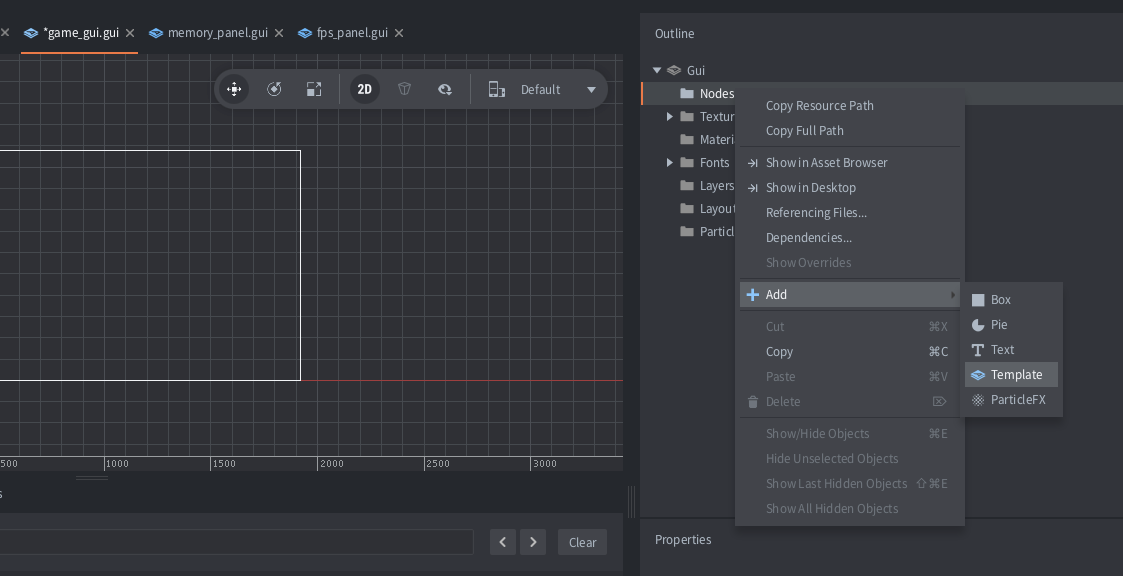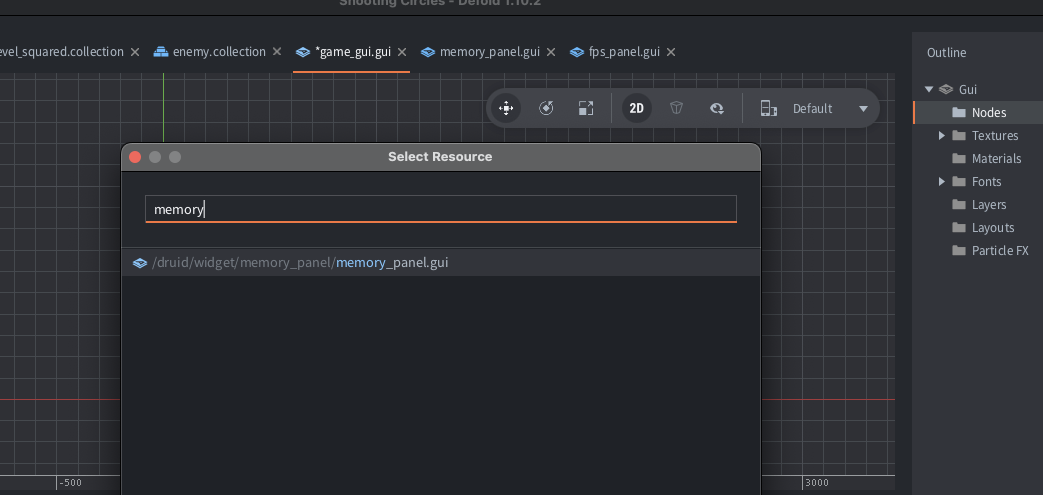3.0 KiB
Memory and FPS Panel Widgets
The Druid 1.1 comes with two included widgets: Memory Panel and FPS Panel, which allow you to monitor memory and FPS in your game.
Widgets in Druid usually consist of two files: GUI, which is used to place as a template on your GUI scene and Lua script, which is used to be create with Druid.
Memory Panel
The Memory Panel is a widget which allows you to monitor memory of your game. It displays the last 3 seconds of memory allocations in graph, largest memory allocation step, total Lua memory and memory per second.
When you see an empty space in graphs - it means the garbage collector is working at this moment.
How to add:
- Add
/druid/widget/memory_panel/memory_panel.guito your*.guiscene
- You can adjust a scale of the template if required
- Add Druid and widget setup to your
*.gui_script
local druid = require("druid.druid")
local memory_panel = require("druid.widget.memory_panel.memory_panel")
function init(self)
self.druid = druid.new(self)
-- "memory_panel" is a name of the template in the GUI scene, often it matches the name of the template file
self.memory_panel = self.druid:new_widget(memory_panel, "memory_panel")
end
function final(self)
self.druid:final()
end
function update(self, dt)
self.druid:update(dt)
end
function on_message(self, message_id, message, sender)
self.druid:on_message(message_id, message, sender)
end
function on_input(self, action_id, action)
return self.druid:on_input(action_id, action)
end
And make sure of:
- The
*.gui_scriptis attached to your*.guiscene - The GUI component is added to your game scene
FPS Panel
The FPS Panel is a widget which allows you to monitor FPS of your game. It displays the last 3 seconds of FPS graph, lowest and current FPS values
How to add:
- Add
/druid/widget/fps_panel/fps_panel.guito your*.guiscene - You can adjust a scale of the template if required
- Add Druid and widget setup to your
*.gui_script
local druid = require("druid.druid")
local fps_panel = require("druid.widget.fps_panel.fps_panel")
function init(self)
self.druid = druid.new(self)
-- "fps_panel" is a name of the template in the GUI scene, often it matches the name of the template file
self.fps_panel = self.druid:new_widget(fps_panel, "fps_panel")
end
function final(self)
self.druid:final()
end
function update(self, dt)
self.druid:update(dt)
end
function on_message(self, message_id, message, sender)
self.druid:on_message(message_id, message, sender)
end
function on_input(self, action_id, action)
return self.druid:on_input(action_id, action)
end
And make sure of:
- The
*.gui_scriptis attached to your*.guiscene - The GUI component is added to your game scene
These widgets not only can be useful for development and profiling your game, but also as an example of how to create custom widgets with Druid and use them in your game.
Thanks for reading!

